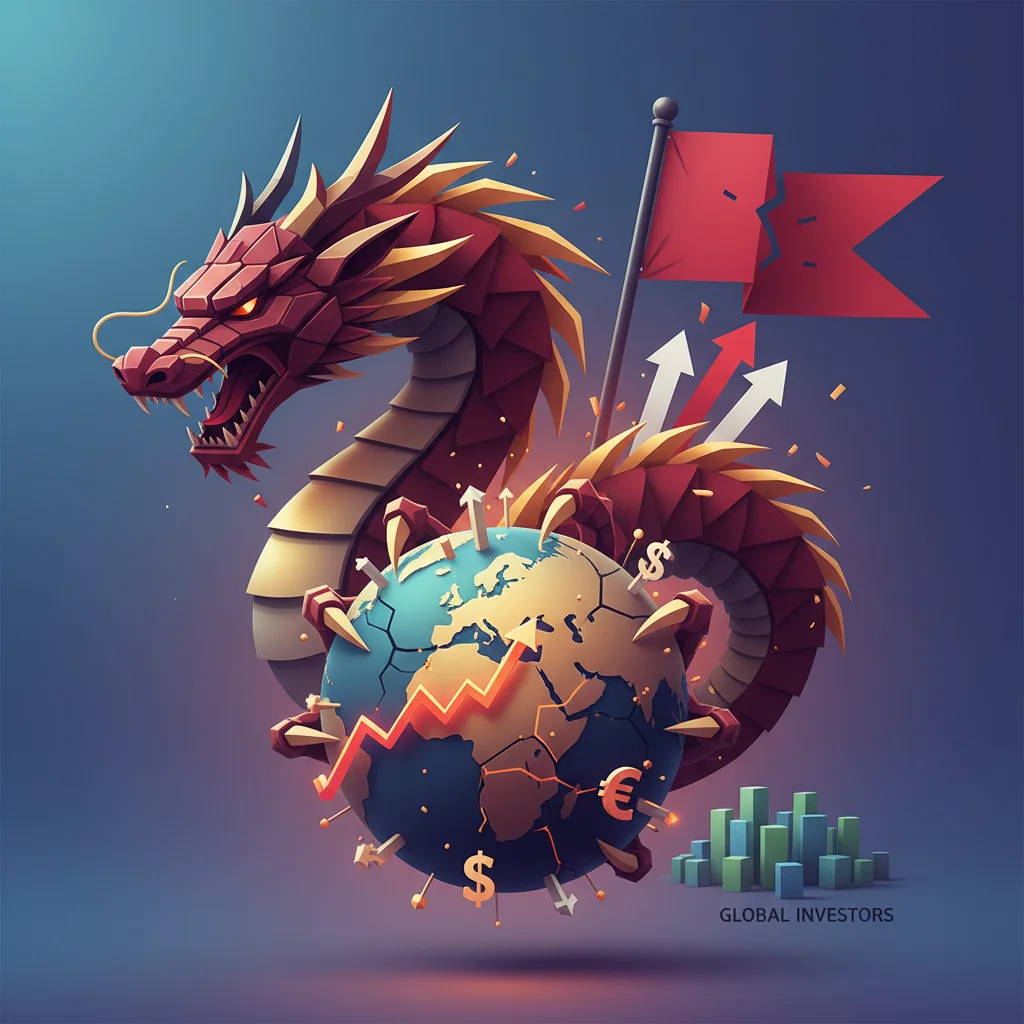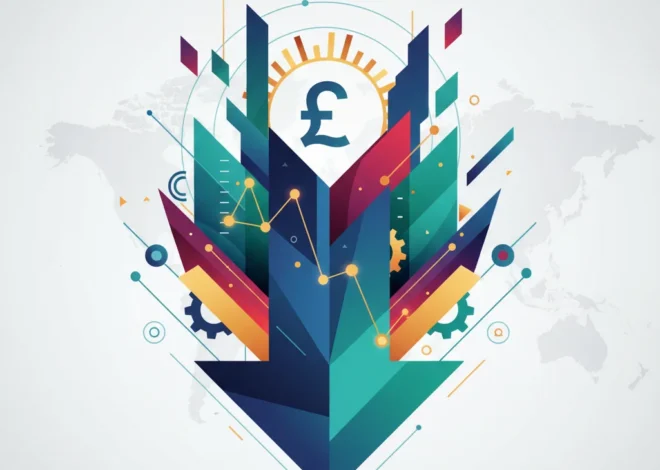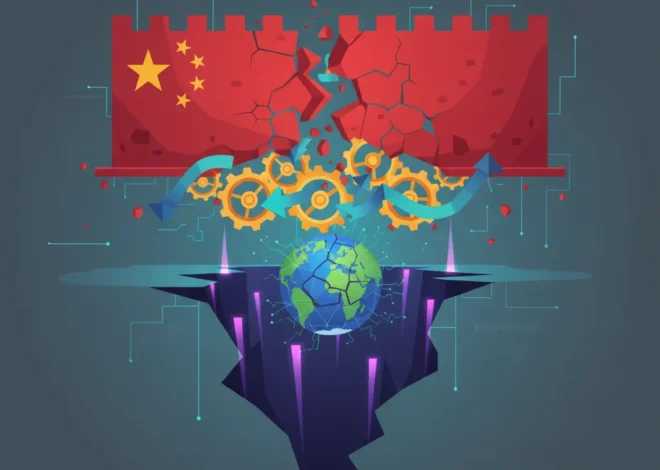
The Dragon’s Grip: Why China’s Social Crackdown is a Critical Red Flag for Global Investors
In the intricate world of global finance, market signals come in many forms—interest rate hikes, earnings reports, and shifts in commodity prices. But sometimes, the most potent indicators of future risk don’t emerge from the stock market or a central bank, but from the quiet shuttering of a church. The recent detention of the founder and followers of Beijing’s prominent Zion Church is more than a headline about religious freedom; for astute investors and business leaders, it’s a stark reminder of a powerful, non-financial risk that is fundamentally reshaping China’s investment landscape: ideological tightening.
For decades, the implicit agreement for foreign capital in China was straightforward: focus on economics, and the political sphere will remain separate. That agreement is now visibly fraying. Beijing’s escalating intolerance for any organization operating outside the direct control of the Communist Party (CCP) is not an isolated policy. It is the common thread in a series of crackdowns that have rocked sectors from technology and education to entertainment. Understanding this pattern is no longer optional for anyone with capital allocated to the world’s second-largest economy. It is central to risk management, portfolio allocation, and the future of global trade.
A Pattern of Control: Beyond a Single Church
The actions against Zion Church, one of Beijing’s largest unofficial congregations, are symptomatic of a much broader strategic objective under President Xi Jinping. The goal is the absolute consolidation of CCP authority over every facet of Chinese society. This campaign transcends religion and cuts to the core of the nation’s economic and social fabric. Consider the parallel actions in recent years:
- The Tech Takedown: The sudden halt of Ant Group’s IPO, the regulatory assault on Didi Chuxing just days after its US listing, and new rules governing data security and algorithms were not just about reining in monopolies. They were a clear message that no company, regardless of its size or contribution to the economy, is bigger than the Party. This sent shockwaves through the global stock market, erasing billions in value and forcing investors to re-price regulatory risk.
- The Education Overhaul: The 2021 ban on for-profit tutoring decimated a multi-billion dollar industry overnight. The official reason was to reduce pressure on students and parents, but the underlying motive was to reclaim control over the ideological development of the nation’s youth, a domain the CCP considers sacrosanct.
- “Common Prosperity”: This policy initiative, aimed at reducing wealth inequality, has been used to pressure corporations and wealthy individuals into “donating” billions to state-backed social causes. While the social goals may be laudable, the methods have blurred the lines between corporate social responsibility and state-mandated wealth redistribution, creating uncertainty for long-term investing.
When viewed through this wider lens, the crackdown on unregistered churches is not a niche human rights issue but another data point in a clear trend. Any group that amasses a large following, possesses an independent source of authority, or promotes a belief system outside of state-sanctioned ideology is now considered a potential threat. This has profound implications for the principles of free-market economics, which thrive on predictability, rule of law, and a degree of separation between commercial and political spheres.
Beyond the Sleek Interface: Why Great Design Won't Solve Finance's "Wicked Problems"
The Fintech Levers of State Power
How does the state execute such wide-ranging control with such precision? The answer, ironically, lies in the very sector that was once hailed as China’s great economic innovator: financial technology, or fintech.
China is a world leader in digital payments and online banking. Platforms like Alipay and WeChat Pay have created a nearly cashless society, offering unparalleled convenience. However, this centralized digital infrastructure also provides the state with an incredibly powerful tool for surveillance and control. Every transaction, donation, and payment creates a data trail that can be monitored. According to some reports, authorities have used these financial footprints to track and pressure members of unsanctioned groups (source).
This fusion of fintech and state security is the engine of social governance. It allows authorities to:
- Monitor Networks: Track financial links between individuals and organizations to map out social networks.
- Apply Financial Pressure: Freeze bank accounts, block transactions, and impact an individual’s ability to participate in the economy without a formal legal process.
- Enforce Compliance: Link financial activity to the burgeoning social credit system, where non-compliant behavior can result in restrictions on travel, loans, and even job opportunities.
For businesses and investors, this reality is a double-edged sword. The efficiency of China’s digital economy is a major draw. Yet, the underlying architecture that enables this efficiency is the same one that can be used to enforce arbitrary and sudden policy shifts, making the operational environment highly unpredictable.
Gauging the Geopolitical Risk for Your Portfolio
The anger from the US and other Western nations over these crackdowns adds another layer of complexity: geopolitical risk. Tensions between Washington and Beijing are no longer confined to trading disputes. They now encompass human rights, technology, and national security, creating a volatile environment for multinational corporations and investors.
This new reality requires a more sophisticated approach to risk analysis. Below is a simplified framework for evaluating the current investment climate in China.
| Factor | The Bull Case (The Opportunity) | The Bear Case (The Risk) |
|---|---|---|
| Market Size | Unparalleled access to 1.4 billion consumers and a massive, growing middle class. Still a primary engine of global growth. | Consumer sentiment can be volatile and influenced by nationalistic trends. Economic growth is slowing due to structural issues. |
| Innovation | World leader in areas like e-commerce, fintech, and green technology. Huge domestic talent pool. | Innovation is increasingly state-directed. Regulatory crackdowns can stifle private-sector dynamism and disrupt entire industries overnight. |
| Policy & Regulation | The government can enact policies swiftly to support strategic sectors (e.g., semiconductors, AI). | Lack of transparency and rule of law. Policy is driven by political ideology, leading to sudden, unpredictable shifts that destroy shareholder value. |
| Geopolitics | China remains a critical node in global supply chains. Economic interdependence is too deep for a complete decoupling. | Escalating US-China tensions create risks of sanctions, tariffs, and investment blacklists. Companies are caught in the crossfire. |
Navigating this requires a dual strategy. First, investors must demand a higher risk premium for Chinese assets to compensate for the heightened uncertainty. Second, diversification—both within China and globally—is more critical than ever. Over-concentration in a market where political winds can shift so dramatically is a recipe for portfolio disaster.
The 'Mud Angel' Fallacy: Why Financial Heroics Mask the Real Risks
The Global Ripple Effect: From Supply Chains to Blockchain
The consequences of China’s inward turn extend far beyond its borders. Multinational corporations are forced to navigate an increasingly difficult environment where they must comply with both Western sanctions and Chinese regulations. This “damned if you do, damned if you don’t” scenario is playing out in sectors from apparel (Xinjiang cotton) to technology (semiconductor restrictions).
This environment of control and surveillance has also, paradoxically, highlighted the philosophical appeal of decentralized technologies. The core premise of blockchain—a trustless, immutable, and censorship-resistant ledger—stands in stark contrast to China’s centralized, state-controlled digital ecosystem. While Beijing has banned cryptocurrencies, it is aggressively developing its own central bank digital currency (CBDC), the e-CNY. This state-run digital currency offers the ultimate tool for financial surveillance and control, representing the antithesis of the decentralized ethos championed by the global crypto community. The global financial system is now witnessing a divergence between two competing models for the future of finance: one open and decentralized, the other closed and state-managed.
This ideological divergence will continue to shape international standards, capital flows, and the very architecture of the next-generation financial system. The crackdown on a church in Beijing, therefore, is not a distant event. It is a data point in this global contest of ideas, with direct implications for the future of technology, finance, and international relations. The U.S. government’s condemnation, as noted by the Financial Times, underscores the growing chasm between these two worldviews.
The 250-Year-Old Blueprint: Is America's Constitution a Ticking Time Bomb for the Global Economy?
Conclusion: A New Paradigm for a New Era
The detention of the Zion Church pastor is a microcosm of a macro trend that no investor or business leader can afford to ignore. China’s priorities have shifted from a singular focus on economic growth to a dual mandate of growth and absolute ideological control. This new paradigm invalidates old assumptions about the separation of politics and business in the country.
For those involved in global finance and investing, the path forward requires a clear-eyed reassessment of risk. The potential rewards of the Chinese market remain significant, but the nature of the risks has changed. They are no longer just economic or financial; they are deeply political and ideological. Ignoring these social and political signals is no longer just a moral oversight—it is a critical failure of financial analysis.


